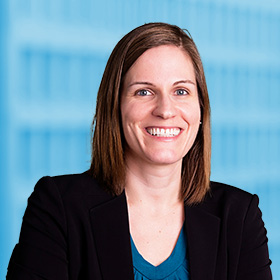Enhancing Substance Use Disorder Services and Compliance Requirements under 42 CFR Part 2
As health centers enhance their substance use disorder (SUD) services, including developing and expanding medication assisted treatment (MAT) services to respond to the opioid crisis, they should be aware that adding staff members dedicated to providing SUD services could require the health center to comply with the federal confidentiality regulations at 42 CFR Part 2 (known as “Part 2”).
Determining whether Part 2 applies to a health center’s SUD services is challenging because health centers must evaluate whether they provide SUD services in a way that meets the definition of a “program” under Part 2. The “program” definition applies to health centers if:
- The health center has an identified unit that holds itself out as providing, and provides, substance use disorder diagnosis, treatment or referral for treatment; or
- Any health center staff member has as their primary function the provision of substance use disorder diagnosis, treatment, or referral for treatment and who are identified as such providers.
Health centers developing SUD programs and teams should carefully consider whether they are creating a “unit” that is “held out” as providing and provides SUD services. If the health center advertises such services, receives authorization from the state or federal government to provide such services or otherwise leads the public to believe it provides SUD services, the health center has held those services out and Part 2 applies.
Health centers adding FTEs must consider the second part of the above definition. Will the primary function of the staff member be to provide SUD services? Does the health center identify the staff member as having that primary function through either job title, job description or another mechanism? If the answer to both questions is yes, then the staff member meets the definition of a Part 2 program. If the staff member primarily provides behavioral health counseling and only occasionally provides SUD services, then the staff member would not meet the definition of a Part 2 program.
Having a process to evaluate whether Part 2 applies is critical because of the strict confidentiality requirements under Part 2 which include additional patient consent and notice requirements, as well as restrictions on disclosures to auditors and business associates, to medical personnel in emergencies and in response to court orders and law enforcement requests. Because of the compliance requirements, health centers should not simply assume Part 2 applies to their SUD services. If, after evaluation, Part 2 does apply, the health center should focus on compliance in order to avoid the criminal penalties associated with non-compliance.
Interested in learning more about Part 2? Join FTLF for a webinar series on 42 CFR Part 2 Compliance beginning in June or for one of our upcoming small group workshops: Responding to the Opioid Crisis (July 10 – 11, 2019) or Managing Patient Privacy & Confidentiality (October 2 – 3, 2019).
Ms. Pledgie is a member of the New York and Massachusetts Bars and is not licensed in Washington, DC. Her practice is limited to federal health care matters.


